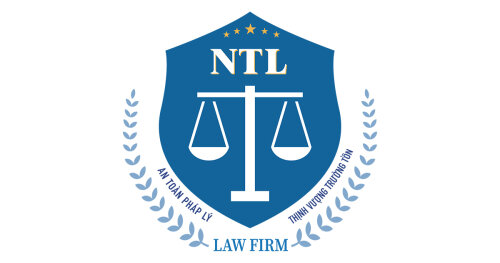Best Corporate Governance Lawyers in Vietnam
Share your needs with us, get contacted by law firms.
Free. Takes 2 min.
Or refine your search by selecting a city:
List of the best lawyers in Vietnam
![[DDC] DONG DU INTERNATIONAL ACCOUNTING, TAXES & LEGAL CONSULTING GROUP HCMC VIETNAM](https://lawzana.com/storage/firms/2690/17617306202399.jpg)
About Corporate Governance Law in Vietnam
Corporate Governance in Vietnam refers to the systems, principles, and processes by which companies are directed and controlled. The purpose of sound corporate governance is to balance the interests of a company’s stakeholders such as shareholders, management, customers, suppliers, financiers, government, and the community. For Vietnamese companies, adherence to corporate governance laws is crucial for sustainable business growth, attracting foreign investment, and ensuring compliance with both local and international regulations. Vietnam’s legal framework for corporate governance covers company formation, the roles and responsibilities of managers and directors, disclosure and transparency requirements, and mechanisms for resolving disputes among stakeholders.
Why You May Need a Lawyer
Navigating corporate governance regulations in Vietnam can be complex, especially for foreign investors or newly established companies. You may need to consult with a legal expert in the following situations:
- Drafting or reviewing a company’s charter, by-laws, and internal governance documents
- Ensuring compliance with disclosure and transparency obligations, especially for public companies
- Resolving internal disputes between shareholders, directors, or management
- Handling allegations of breach of fiduciary duty or conflicts of interest among company leaders
- Advising on the rights and responsibilities of majority and minority shareholders
- Structuring corporate reorganizations, mergers, or acquisitions
- Implementing corporate social responsibility policies or ESG (Environmental, Social, and Governance) practices
- Complying with Vietnam’s anti-corruption and anti-money laundering laws
- Interpreting and applying new regulatory changes from authorities such as the State Securities Commission of Vietnam
Local Laws Overview
Vietnamese corporate governance is primarily governed by the Law on Enterprises (amended in 2020), the Law on Securities, various decrees, and guiding documents from regulatory agencies. Key aspects include:
- Corporate Structure: The law sets out forms of commercial organizations, including limited liability companies (LLCs), joint stock companies (JSCs), partnerships, and private enterprises. Each has specified governance structures and decision-making processes.
- Board of Management/Directors: Joint stock companies require a Board of Directors and a Supervisory Board. Their roles, appointment processes, voting rights, and duties are detailed in law.
- Shareholder Rights: Laws protect both majority and minority shareholders, ensuring the right to participate in decisions, access information, and dispute resolution mechanisms.
- Disclosure and Reporting: Companies must maintain transparent financial records, conduct annual general meetings, and regularly disclose company information, especially if publicly listed. Non-compliance can result in penalties or prosecution.
- Conflict of Interest and Fiduciary Duty: Directors, managers, and members of supervisory bodies must prioritize the company’s best interests and disclose any conflicts of interest.
- Foreign Investment: There are specific governance and reporting requirements for companies with foreign investment, often including additional due diligence and approval steps.
- Anti-corruption and Compliance: Vietnamese law mandates anti-corruption, anti-bribery, and anti-money laundering policies for companies, especially for those operating in regulated industries.
Frequently Asked Questions
What is corporate governance, and why is it important in Vietnam?
Corporate governance involves the rules and practices that guide how a company is managed and controlled. It is essential in Vietnam as it builds investor confidence, ensures legal compliance, protects stakeholder interests, and fosters sustainable business growth.
Which types of companies are most affected by corporate governance regulations in Vietnam?
All businesses have to follow certain governance standards, but joint stock companies, especially those listed on the stock exchange or with foreign investment, are most stringently regulated.
What are the main responsibilities of the Board of Directors in a Vietnamese company?
The Board is responsible for strategic management, supervising executive management, safeguarding shareholder interests, and approving major business decisions in compliance with the law and the company’s charter.
How are shareholder rights protected under Vietnamese law?
Shareholders have rights to information, voting rights at general meetings, rights to dividends, protection against unfair treatment, and legal recourse in case of disputes or management misconduct.
Are there specific requirements governing related party transactions in Vietnam?
Yes, the law requires disclosure of related party transactions. These transactions must be approved by the Board of Directors or shareholders, depending on the nature and size of the transaction.
What are the obligations for disclosure and transparency for Vietnamese companies?
Companies must prepare and publish annual financial statements, disclose major business decisions or changes, and report certain activities to state authorities, especially if publicly listed or foreign invested.
Can foreign investors serve as directors or managers in Vietnamese companies?
Yes, foreign nationals can act as directors or managers, but they must comply with Vietnamese regulations on work permits, resident status, and may face sector-specific restrictions depending on the company’s business line.
What penalties exist for violations of corporate governance laws?
Penalties range from administrative fines to criminal liability and include disqualification of directors, suspensions, company dissolution, and civil damages for losses suffered by the company or shareholders.
Are companies required to adopt any specific anti-corruption measures?
Yes, companies are expected to implement anti-corruption, anti-bribery, and anti-money laundering programs. Public companies and those in sensitive sectors face more stringent requirements and oversight.
How often do companies need to hold general meetings of shareholders in Vietnam?
Joint stock companies must hold at least one annual general meeting of shareholders within four months from the end of their financial year, as required by law.
Additional Resources
For more information on corporate governance in Vietnam, consider consulting the following resources:
- Vietnam Ministry of Planning and Investment (MPI) - Provides guidance for setting up and governing companies
- State Securities Commission of Vietnam (SSC) - Oversees securities markets and disclosure compliance for listed companies
- Vietnam Chamber of Commerce and Industry (VCCI) - Offers resources and training programs on good governance
- Vietnam Lawyers Association - Directory of legal professionals specializing in business and corporate law
- International Finance Corporation (IFC) - Publishes guides on corporate governance tailored to Vietnamese and foreign-invested enterprises
Next Steps
If you require legal help with corporate governance in Vietnam, start by identifying your specific legal needs - whether drafting documents, resolving a conflict, or understanding compliance obligations. Schedule a consultation with a qualified Vietnamese legal professional specializing in corporate law and governance. Prepare relevant documents such as your company charter, financial statements, and correspondence with stakeholders. Stay informed about continuing changes to Vietnamese law, and consider ongoing legal support to ensure your company maintains best practices and complies fully with local requirements.
Lawzana helps you find the best lawyers and law firms in Vietnam through a curated and pre-screened list of qualified legal professionals. Our platform offers rankings and detailed profiles of attorneys and law firms, allowing you to compare based on practice areas, including Corporate Governance, experience, and client feedback.
Each profile includes a description of the firm's areas of practice, client reviews, team members and partners, year of establishment, spoken languages, office locations, contact information, social media presence, and any published articles or resources. Most firms on our platform speak English and are experienced in both local and international legal matters.
Get a quote from top-rated law firms in Vietnam — quickly, securely, and without unnecessary hassle.
Disclaimer:
The information provided on this page is for general informational purposes only and does not constitute legal advice. While we strive to ensure the accuracy and relevance of the content, legal information may change over time, and interpretations of the law can vary. You should always consult with a qualified legal professional for advice specific to your situation.
We disclaim all liability for actions taken or not taken based on the content of this page. If you believe any information is incorrect or outdated, please contact us, and we will review and update it where appropriate.
Browse corporate governance law firms by city in Vietnam
Refine your search by selecting a city.
















